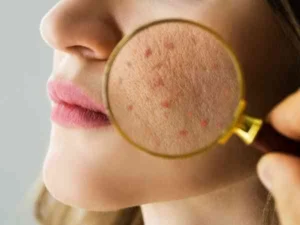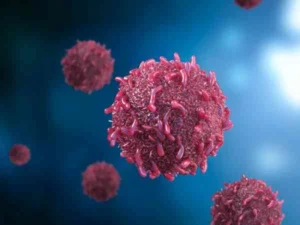Overview
Before jumping into understanding how to increase AMH levels, one must understand the basics of female fertility. Anti-Mullerian Hormone (AMH) may not be the most talked-about hormone in reproductive health, but it’s important to understand, especially if you’re planning for pregnancy. Women are born with approximately 1 to 2 million eggs. Starting with your first period, groups of follicles (each containing a tiny, immature egg) respond to hormones and release one egg, usually each month. The unused eggs dissolve and the cycle repeats till the female gets pregnant.
Unfortunately, fertility diminishes with age, Therefore it is very important for females to get educated about fertility, its tests and treatments to remain healthy. In this blog we will focus on what AMH is and how to increase AMH level by food naturally.
Understanding AMH and its levels

AMH is produced by the granulosa cells of the ovarian follicles. Although AMH levels are different for every person, there is a general range that is considered normal, and is termed as a healthy ovarian reserve. AMH (Anti-Mullerian Hormone) is a test doctors use to measure a woman’s ovarian reserve, or egg number. Produced by small follicles in the ovaries. It informs about the number of eggs. You can do this test any day because the AMH levels stay constant in the body.
Low AMH levels indicate a decreased ovarian reserve (DOR), meaning there is a shortage of egg supply. Please note that low AMH levels do not mean poor egg quality. According to ACOG AMH testing should not be performed in women who are not fertile. Healthy AMH levels are 2–6.8 ng/ml (14.28–48.55 pmol/l) in women. If the value is between this range it shows that you have enough eggs.
Younger women have higher AMH levels as it declines with age. Also if menopause approaches it turns in low AMH means. Also this varies from women to women, as some women may have this naturally.
Causes of low AMH levels

- Genetic factors: Low AMH levels can be a consequence of genetic predispositions, and therefore, the reserve of ovarian function can be affected.
- Lifestyle and environmental influences: If you smoke, have a poor diet, and have a toxic environment this can be a reason to have a low AMH level.
- Medical conditions and hormonal imbalances: PCOS, endometriosis, and hormonal imbalances can also be a reason for low AMH levels. Some treatments like chemotherapy also lower AMH levels.
Impact of AMH levels on pregnancy

AMH levels are directly related to ovarian reserve, which is the number of fertile eggs a woman has. Higher AMH levels means great ovarian reserve. Also note that the AMH levels do not indicate the quality of eggs. Yes this is true that it indicates how a woman will respond to fertility treatments. Higher AMH levels indicate and have better response to ovarian stimulation in IVF.
Challenges with Low AMH Levels
The biggest challenge women with low AMH levels face is getting pregnant. This is because the number of eggs has been reduced. They are usually recommended fertility treatments such as IVF, ovulation induction and egg donation. A thorough research and customized plan is required sometimes to increase the conception chances in such cases. Low AMH levels take an emotional toll on a woman’s mind. Followed by stress, anxiety and their ability to conceive.
Dietary Strategies to Increase AMH Levels

1. Nutritional Strategies to Increase AMH Levels
- Protein: They provide amino acids and support overall health. They maintain hormonal balance and promote healthy ovaries. These are some natural ways if you are wondering how to increase AMH levels.
- Plant-Based Protein (Legumes, Nuts, Seeds): Plant-Based Proteins Are Rich in Fiber and Nutrients. They provide vitamins and minerals that support ovarian health and improve AMH levels.
- Healthy Fats: Provides Omega-3 Fatty Acids (Fish, Flaxseed, Walnuts). Reduces inflammation and supports hormone balance.
- Monounsaturated and Polyunsaturated Fats (Olive Oil, Avocado): They maintain cellular integrity and hormone production.
- Carbohydrates, Whole Grains (Quinoa, Brown Rice, Oats): The nutrient and fiber present regulate blood sugar and support overall hormone health.
- Fiber-rich vegetables and fruits: Consuming a great size of vegetables and fruits gives you vitamins, minerals, and antioxidants needed to maintain reproductive health.
- Vitamins and Minerals: (Sources: sun, fatty fish, fortified foods) Although you can get vitamin D naturally but if not able to get it naturally one can opt for supplements.
- Vitamin E: (Sources: Nuts, Seeds, Spinach): Vitamin E is an antioxidant that supports reproductive health. This nutrient protects eggs from oxidative stress and improves overall fertility.
- Folic Acid: ( Sources: Leafy Greens, Citrus Fruits, Beans): Helpful in DNA synthesis and repairment. Note that a balanced amount of folate intake is needed for pre-pregnancy health along with this the prevention of neural tube defects is also important in the initial stages of pregnancy.
- Zinc and Selenium: (Sources: Pumpkin Seeds, Brazil Nuts, Seafood)L All of these are required for reproductive health and hormone regulation.
2. Impact on Hormonal Regulation
All of these minerals maintain hormones and support reproductive health. Adding these in your diet will definitely improve your reproductive health that will eventually improve AMH levels.
Medical and Supplement Interventions

Hormonal Treatments
There are some medicine to increase AMH level also. Clomiphene citrate and gonadotropins fertility medications help in stimulating ovaries to produce more eggs. But there can be risks of ovarian hyperstimulation syndrome (OHSS). Then comes the Hormone replacement therapy (HRT) that helps in treating hormone imbalances. It replaces missing hormones and improves the overall reproductive health.
Supplements
There are many supplements that help in maintaining the AMH levels. Coenzyme Q10 (CoQ10) is an antioxidant that supports mitochondrial function and is important for egg quality and ovarian health. Its doses are safe if it ranges from 100-600 mg per day and under doctor’s guidance. Also DHEA (dehydroepiandrosterone) can increase AMH levels and eventually improves ovarian reserve.
Acupuncture and Herbal Remedies
The best part about traditional Chinese treatments: Acupuncture and herbal therapies is that they aim at balancing the body’s energy to improve reproductive health. Some research says that these treatments may be beneficial in promoting fertility. Point to not that their effectiveness and safety may vary.
Summing up,
Understanding the basics of female fertility, including AMH, is very important for all women who want to conceive. Women are born with all the eggs, but fertility declines with age. That’s why it’s important to learn about infertility testing and treatments. There can be a number of factors that lower AMH levels such as genetic factors, lifestyle, and medical conditions. But you can manage all these factors with some lifestyle and nutrient changes. But do contact your doctor before opting for any medications.





